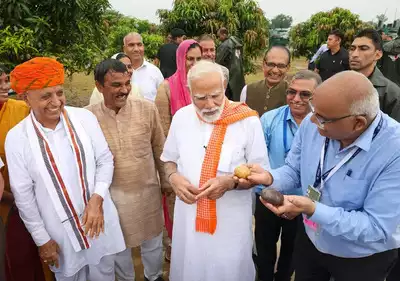Context:
Recently, Prime Minister (PM) Narendra Modi unveiled 109 high-yielding, climate-resilient, and biofortified varieties of crops at the Indian Agricultural Research Institute (IARI) in New Delhi.
More in the News:
- Lab-to-Land Program: This event is a prime example of the lab-to-land initiative, linking research directly to farming practices.
- Value Addition in Agriculture: This initiative aims to enhance agricultural productivity and sustainability in India.
- It will help farmers reduce costs and increase their income.
- Climate-Friendly Seeds: This newly released seeds are designed to thrive even in adverse weather conditions, ensuring better yields.
Biofortification:
- It is the process by which the nutrient density of crops is increased through breeding, agronomy, or biotechnology without sacrificing any characteristic that is preferred by consumers or most importantly by farmers.
- It is recognized as a nutrition-sensitive-agriculture intervention that can reduce vitamin and mineral deficiency
- For example, iron-biofortification of rice, beans, sweet potato, cassava and legumes; while zinc-biofortification of wheat, rice, beans, sweet potato and maize etc.
About High-Yielding Varieties:
- Diverse Crop Varieties: 109 varieties of crops developed by the Indian Council of Agricultural Research (ICAR) were released, these varieties are applicable to 61 crops, including 34 field crops and 27 horticultural crops.
- Focus on Nutrition: These biofortified varieties aim to improve nutritional quality, address dietary deficiencies and promote healthier food choices.
- Farmer Engagement Initiatives: PM Modi proposed that agricultural experts engage with farmers monthly to discuss current agricultural challenges and foster collaborative solutions.

